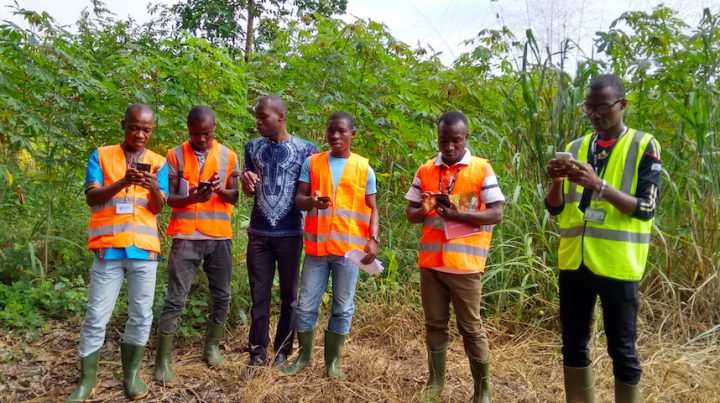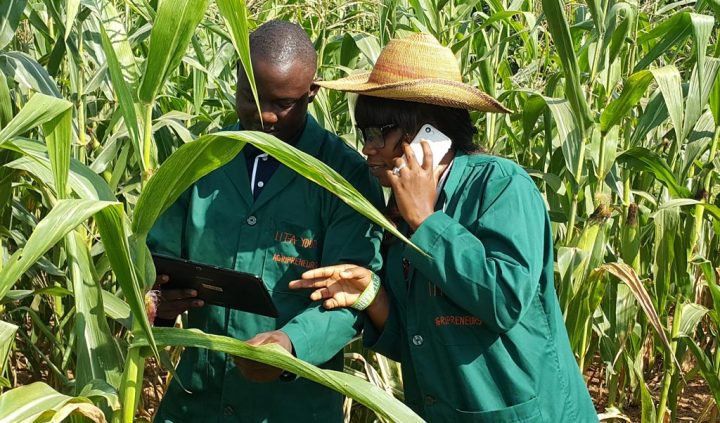
AFRICA • AGRICULTURE
Norman Hoeltz
OCTOBER 2, 2017
This is article is written in anticipation and excitement for Seedstars’ arrival to Maputo, Mozambique for the Seedstars Africa Summit, Powered by Standard Bank South Africa this December and after participating in the AgriTech in (South) Africa workshop which took place during Seedstars Johannesburg, South Africa on June 29th, 2017.
Stakeholders with very different backgrounds, interests and visions came together to explore and discuss how AgriTech is changing the agriculture and food industry landscape in South Africa. In this context particular focus was put around African smallholder agriculture and co-operative structures as they are considered to be crucial contributors to food security in Africa.
In general it can be stated that 80% of the farmland in sub-Saharan Africa (SSA) is managed by smallholder farmers. Smallholders are small-scale farmers managing areas varying from less than one hectare to 10 ha. In addition, smallholders are characterized by family-focused motives favouring the stability of the farm household system, using primarily family labour for production and using part of the production for family consumption.
Out of the 2.5 billion people in poor countries living directly from the food and agriculture sector, 1.5 billion people live in smallholder households contributing up to 80% of the food supply in SSA. However the economic viability is threatened by competitive pressure from globalization and integration into common economic areas. In consequence, smallholders will either disappear and become purely self-subsistence producers or they will have to grow into larger units that can compete with industrialized farms. Having said that it has to be emphasized that co-operative structures have failed to succeed in South Africa over the last decades. Co-operatives struggle to mobilise and sustain collective marketing during their life cycle due to disruptive side-selling by member-farmers resulting in low co-operative health and even in organizational dormancy or collapse. The coordination amongst co-operative members, the prevalent hierarchy structures and the ownership attitude add to the challenges of making co-operatives a success story hence preventing the promotion of rural entrepreneurship and prosperous agribusinesses.

Traditional attempts to improve the incomes of smallholder farmers in SSA have focused on increased access to improved seeds, fertilizers, pesticides, training, financial and insurance services as well as mechanization support. The greater penetration of mobile technology and the internet had an enormous impact on the lives of farmers. Advances in digital technology are transforming the agricultural sector, facilitating the aggregation of farmers and farm level data thus helping to boost financial inclusion for smallholder farmers. Digitalization in agriculture includes a wide range of activities around data analytics, precision agriculture and smart farm management systems which were adapted to suit local and regional contexts in an effort to maximize production and to ensure cost effectiveness.
Emerging technologies have also been integrated with mobile technology that is pervasive in SSA to scale and replicate success across the agricultural sector. This in turn leads to sophisticated network structures that have helped to increase productivity at farm level and facilitated access to markets across value chains. Digital technology is also beginning to offer new and improved ways of managing one’s farm and connecting to other players throughout the value chain.
Venture capitalists did invest more than US$ 2 billion in agriculture technology start-ups in 2014 and again in 2015. The trend is expected to continue in the coming years as the demand for smart, digital and innovative farm technology is ever increasing. Advances in digital technology are bringing to the forefront potentially transformational technologies available to the typical smallholder farmer in SSA. These technologies are offering new ways to modernize agriculture by consolidating and aggregating farmers and critical plot- level information.
Unfortunately the benefits of these technologies have been largely limited to large-scale industrial agricultural players so far. However, the use of ICT has recently helped to improve the farming experience across small-scale value chains as well. This has enabled smallholder farmers to access market information, to engage with value chain actors along the entire supply chain and to ensure traceability, compliance and sustainability of their produce and farms. With the need to organize smallholder producers under specific value chains into stable units, the technology enables value chain actors to establish structured and easy to regulate entities that comply with product safety and quality standards.
Having said that, smallholder farmers and farmer organizations are still facing challenges with information flow and management due to limited financial resources and technical knowhow for applying technologies. New technologies are often quite complex and too sophisticated for smallholder farmers to use, which has limited their adoption and impact. Nevertheless governments and decision makers are intervening in the development and promotion of digital technology in the agricultural sector by fostering multi-stakeholder partnerships to promote the use of sustainable ICT models.
Without a doubt, digital technology has the potential to innovate all parts of the food system and is currently doing so in an inclusive and sustainable manner, targeting smallholders, women and youth.
The high level political will and commitment to increased growth in the agricultural sector is helping to accelerate smart agriculture and financial inclusion which in turn has resulted in increased access to inputs and markets by smallholders and led to a considerable positive regional impact.

AgTech is a fascinating field in agriculture which will most certainly change the landscape in large commercial and smallholder farming. A rich variety of value increasing solutions is in the market already targeting either very different areas of application or stakeholders in the agricultural ecosystem. In this context the impact of collaboration amongst the wide range of stakeholders has long been underestimated. In most developing countries, several different government ministries and agencies manage and track resources and information relevant to smallholder farms and their productivity including climate, soil and crop data. The fact that various stakeholder in agriculture capture and manage agri data in their own information silos makes it difficult to impossible for smallholder farmers and other value chain actors to access all these incomplete silos of information and to make informed decisions in the face of uncertainty. Collaboration around data and information, the smart aggregation and recombination as well as the provision of derived data will have a significant impact to the ecosystem and determine how and to which extent smallholder farmers will be empowered in the future. AgTech has the beautiful opportunity to facilitate and support this vital collaboration in agriculture across multiple value chains and even cross-border.
We hope to see you at the African Regional Summit, get your tickets here !
Many thanks to Dr Norman Hoeltz, Founder & CEO at aparate who wrote this article.